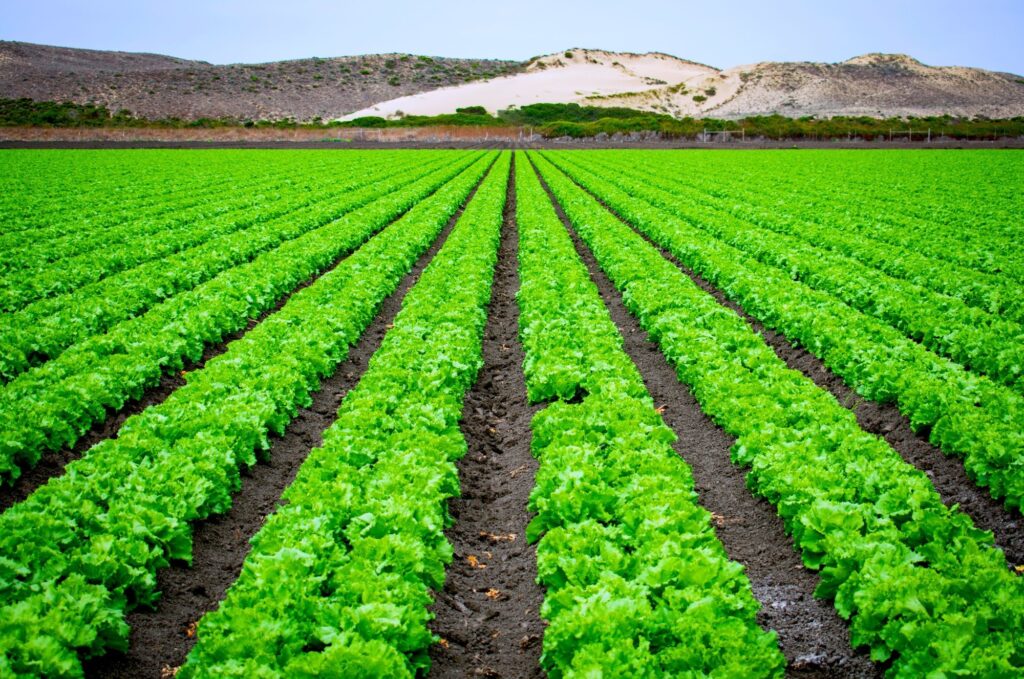The convergence of technology and agriculture is reshaping the future of farming. As global challenges such as climate change, resource scarcity, and a growing population intensify, the agricultural sector faces unprecedented pressure to innovate. Leading this transformation are tech giants Amazon and Microsoft, whose strategic investments in agricultural technology (ag-tech) aim to enhance sustainability, productivity, and resilience in farming practices. This article explores their initiatives and the profound impact on modern agriculture.
Table of Contents
ToggleThe Growing Need for Ag-Tech Innovation
Modern agriculture confronts several critical challenges:
- Climate Change: Unpredictable weather patterns and extreme events disrupt crop yields and livestock health.
- Resource Scarcity: Limited availability of arable land and water necessitates more efficient resource utilization.
- Rising Food Demand: A burgeoning global population increases the demand for food production, straining existing agricultural systems.
To address these issues, the integration of advanced technologies—such as artificial intelligence (AI), data analytics, and automation—has become essential. Ag-tech innovations offer solutions like precision farming, real-time monitoring, and data-driven decision-making, enabling farmers to optimize outputs while minimizing environmental impact.
Amazon’s Foray into Ag-Tech
Amazon has embarked on several initiatives to foster innovation in agriculture:
- Climate Pledge Fund: Established in 2020 with an initial $2 billion investment, this fund supports companies developing sustainable technologies. Notable investments include:
- Hippo Harvest: A startup utilizing AI and robotics to create sustainable indoor farming solutions, reducing water usage and pesticide reliance.
- Amogy: Developing an ammonia-to-power system for emission-free heavy-duty transportation, with potential applications in agricultural machinery.
- AWS Initiatives: Amazon Web Services (AWS) collaborates with ag-tech startups to provide cloud computing resources, facilitating data analysis and scalability. For instance, AWS supports Aigen, a company developing solar-powered, AI-driven robots for weeding and crop data collection.
Impact:
Amazon’s investments aim to transform traditional farming by integrating technology that enhances efficiency and sustainability. By supporting innovations in areas like indoor farming and clean energy for agricultural equipment, Amazon contributes to reducing the environmental footprint of agriculture and promoting resilient food production systems.
Microsoft’s Commitment to Sustainable Agriculture
Microsoft has undertaken several initiatives to advance sustainable agriculture through technology:
- Climate Innovation Fund: Launched in 2020 with a $1 billion commitment, this fund invests in companies developing technologies to reduce carbon emissions and promote sustainability. Notable investments include:
- Yard Stick: Develops affordable soil carbon measurement tools, enabling farmers to assess and enhance soil health.
- Vibrant Planet: Collaborates with organizations to address environmental challenges such as wildfires and water conservation, aiming to create climate-resilient ecosystems.
- Farmland LP: An investment fund that acquires farmland and implements regenerative agricultural practices to enhance sustainability, including reducing synthetic pesticide use and increasing carbon sequestration.
- Azure Data Manager for Agriculture: This platform integrates data from various agricultural sources to provide actionable insights for farmers, aiming to enhance productivity and sustainability.
Impact:
Microsoft’s investments focus on leveraging data and AI to optimize farming practices, improve resource management, and promote regenerative agriculture. By supporting technologies that enhance soil health and ecosystem resilience, Microsoft contributes to building a more sustainable and efficient agricultural sector.

How Amazon and Microsoft Differ in Their Approaches
While both Amazon and Microsoft are committed to advancing ag-tech, their strategies exhibit distinct focuses:
- Amazon’s Approach:
- Startup Collaborations: Amazon emphasizes partnerships with startups, providing resources and support to foster innovation in areas like robotics and AI for agriculture.
- Climate Pledge Fund: Invests in companies developing technologies that align with Amazon’s sustainability goals, including renewable energy and carbon reduction solutions.
- Microsoft’s Approach:
- Data Integration: Microsoft focuses on creating platforms like Azure Data Manager for Agriculture to integrate and analyze agricultural data, providing farmers with actionable insights.
- Climate Innovation Fund: Invests in companies developing technologies for carbon capture, soil health, and regenerative agriculture, emphasizing environmental sustainability.
Complementary Contributions:
Amazon’s emphasis on fostering innovation through startup collaborations complements Microsoft’s focus on data integration and sustainability. Together, their investments address various aspects of agricultural challenges, from technological advancements to environmental conservation.
The Broader Implications
The investments by Amazon and Microsoft in ag-tech have significant implications:
- For Agriculture:
- Enhanced Productivity: Technological innovations lead to more efficient farming practices, increasing crop yields and resource utilization.
- Sustainability: Adoption of sustainable practices reduces environmental impact, promoting long-term viability of agricultural systems.
- For Big Tech:
- Market Expansion: Entering the ag-tech sector opens new markets and opportunities for growth.
- Corporate Responsibility: Investing in sustainable agriculture aligns with corporate social responsibility (CSR) goals and enhances brand reputation.
By leveraging their technological expertise and resources, Amazon and Microsoft play pivotal roles in transforming agriculture to meet future demands sustainably.
Challenges and Criticisms
While Amazon’s and Microsoft’s investments in agricultural technology (ag-tech) hold promise, they also face several challenges and criticisms:
- Data Privacy and Ownership: The integration of advanced technologies in agriculture raises concerns about data privacy and ownership. Farmers may be hesitant to share their data due to fears of misuse or loss of control over proprietary information. Ensuring transparent data governance and establishing clear ownership rights are essential to address these concerns.
- Accessibility for Smallholder Farmers: The high cost and complexity of ag-tech solutions can be prohibitive for smallholder farmers, particularly in developing regions. Without targeted efforts to make these technologies affordable and user-friendly, there is a risk of widening the digital divide in agriculture.
- Environmental Impact of Technology: While ag-tech aims to promote sustainability, the production and disposal of technological devices can have environmental repercussions. For instance, the manufacturing of sensors and drones involves resource extraction and energy consumption, which may offset some environmental benefits.
- Market Dominance and Monopolization: The significant involvement of tech giants like Amazon and Microsoft in agriculture raises concerns about market dominance. There is apprehension that their influence could lead to monopolistic practices, potentially stifling competition and innovation within the ag-tech sector.
Conclusion
Amazon’s and Microsoft’s strategic investments in ag-tech represent a pivotal shift towards integrating advanced technologies in agriculture. Their initiatives have the potential to enhance productivity, promote sustainability, and address pressing global challenges such as food security and climate change. However, realizing these benefits requires careful consideration of the associated challenges. Addressing data privacy concerns, ensuring equitable access to technology, mitigating environmental impacts, and preventing market monopolization are crucial steps. By fostering collaboration among tech companies, farmers, policymakers, and other stakeholders, the agricultural sector can harness the full potential of ag-tech innovations to build a resilient and sustainable future.




